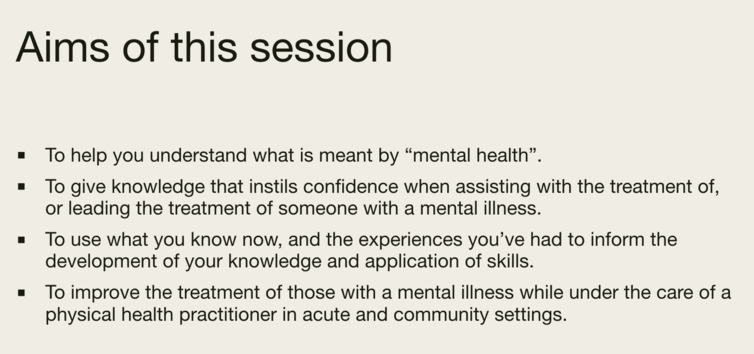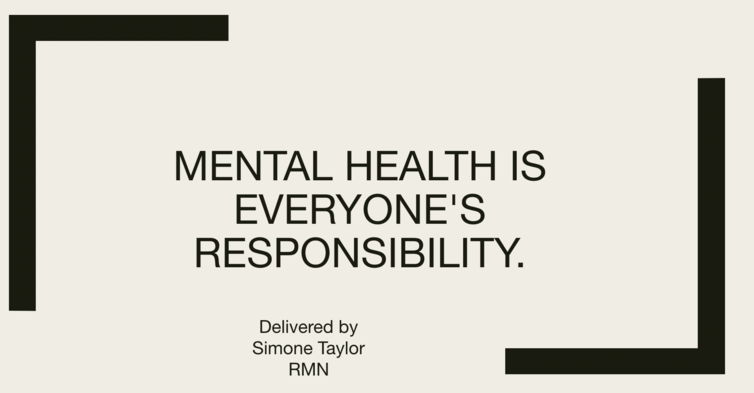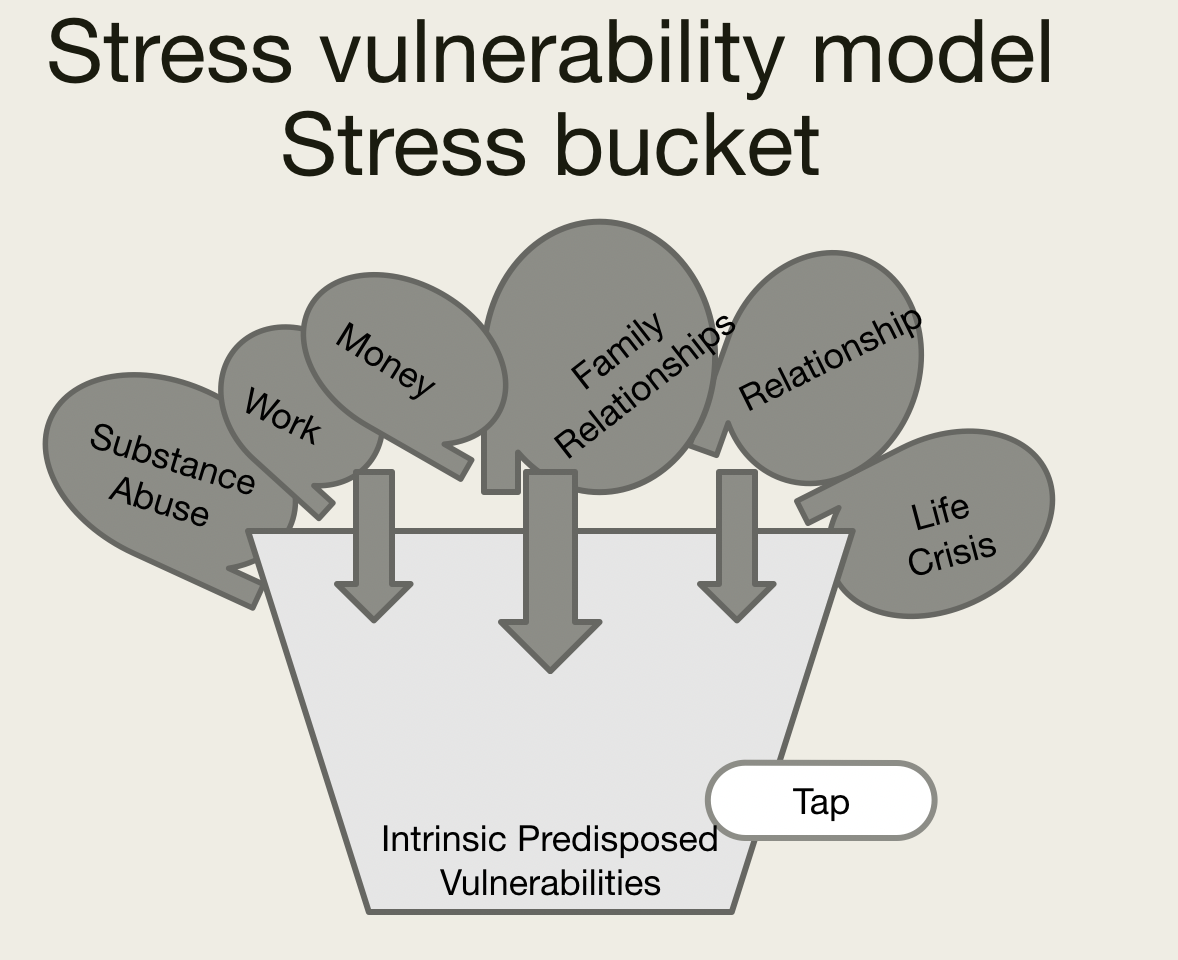During my 3 years of training to become a mental health nurse, I shared a cohort with adult nursing student.
Over the course of my time with these fabulous nurses, I understood more and more that they were not being exposed to mental health specific education, that would be essential within their daily job roles. many of my fellow students would ask me 'how do you do it?' ' aren't schizophrenic people really dangerous?!'
These questions prompted me to develop an interactive face-face workshop that could be information, evidence based , educational and useful in future practice. I also hoped that the workshop would help to break down the stigma that is attached to and is often misleading regarding individuals who have a diagnosis of a serious mental illness, such as schizophrenia.

The content involves getting a base line of peoples understanding, exposure to and experience of mental health illness. It then moves to looking at how a person may be vulnerable to poor mental health experience, using the Zubin and Spring (1977) Stress Vulnerability model ' The Stress Bucket', and how they them self could maintain balance of their own bucket.
I then moved on to giving an overview of the different types of mental disorders; what they were, how they presented in the person and their population prevalence. Within the slide for psychosis i included an audio clip from YouTube that was developed, using real life data, to enable the listener to experience what voice hearing (auditory hallucinations) are like.
After each disorder was presented, we discussed how they may present in a person i.e. the symptoms, and the different ways of treating that set of symptoms, with both medication and therapeutic interventions.
Towards the end of the workshop were 4 practical scenarios for the class to work through. These scenarios were developed by myself, using different elements of experience I had had up to this point in my training. The points for consideration and non-prescriptive scenario answers were developed in collaboration with other registered mental health practitioners, within experience in specific fields that correlated with the scenario. The scenario involving a child was developed with Child and Adult Mental Health community practitioners, the A&E Scenario with Psychiatric Liaison nurses and so on. The answers to the scenarios were based on the actions, a mental health professional, would expect of an health care professional, not trained in mental health at all. With each non prescriptive answer I stressed to the class that they would need to be aware of their own competence and confidence levels when undertaking any care.
Within the workshop there are quotes from mental health services users, who have been frequent attenders to A&E, who were happy for me to share their words. These quotes were used in order to represent how a mental health service user attending A&E may feel, and the stigma they may experience. I feel these quote help to reinforce the need to be non-judgemental within healthcare in any field.
Feedback on the sessions delivered have been constructive and positive. I always welcome feedback, as it supports the continued development of this workshop, to ensure it meets the needs of those receiving it, and those living with mental health illnesses.
Click on the image to view the entire presentation


